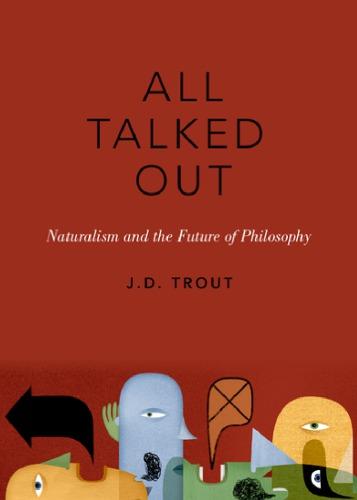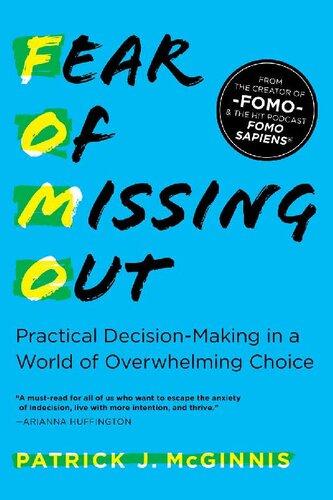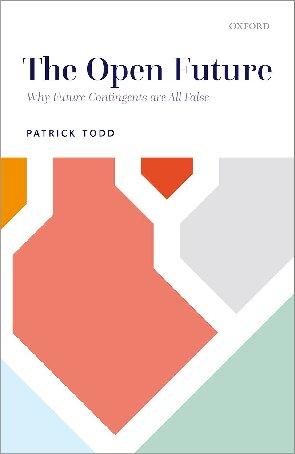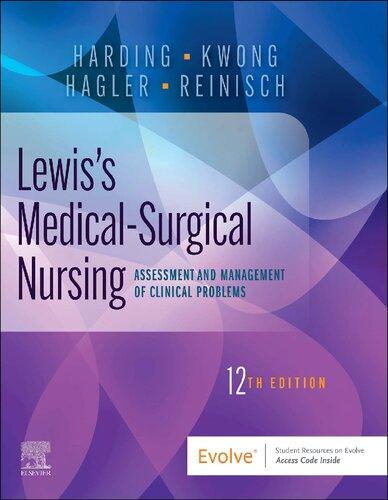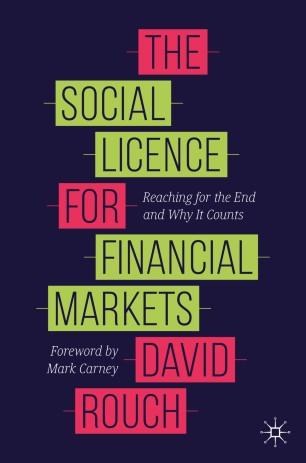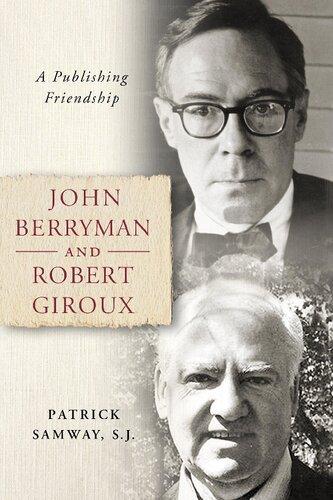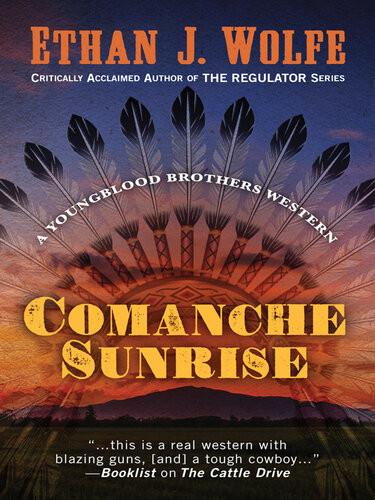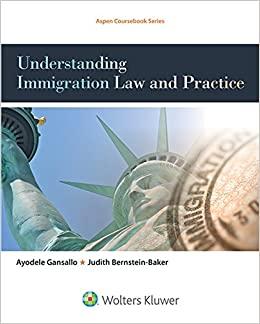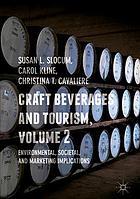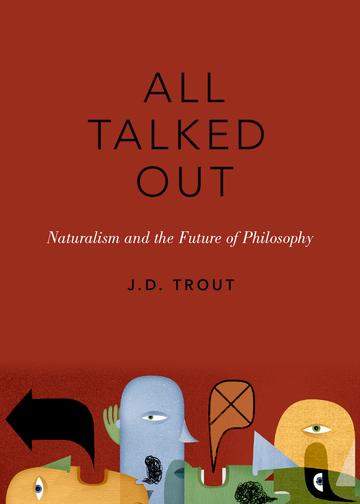https://ebookmass.com/product/all-talked-out-naturalism-and-
Instant digital products (PDF, ePub, MOBI) ready for you
Download now and discover formats that fit your needs...
The Oxford Annotated Mishnah Littauer Professor Of Hebrew Literature And Philosophy Shaye J D Cohen
https://ebookmass.com/product/the-oxford-annotated-mishnah-littauerprofessor-of-hebrew-literature-and-philosophy-shaye-j-d-cohen/ ebookmass.com
Fear of Missing Out Patrick J. Mcginnis
https://ebookmass.com/product/fear-of-missing-out-patrick-j-mcginnis/
ebookmass.com
The Open Future: Why Future Contingents are All False Patrick Todd
https://ebookmass.com/product/the-open-future-why-future-contingentsare-all-false-patrick-todd/
ebookmass.com
Lewis's Medical-Surgical Nursing: Assessment and Management of Clinical Problems 12th Edition Mariann M. Harding
https://ebookmass.com/product/lewiss-medical-surgical-nursingassessment-and-management-of-clinical-problems-12th-edition-mariann-mharding/ ebookmass.com
https://ebookmass.com/product/hirsizlarin-yemini-mary-e-pearson/
ebookmass.com
The Social Licence for Financial Markets: Reaching for the End and Why It Counts 1st ed. Edition David Rouch
https://ebookmass.com/product/the-social-licence-for-financialmarkets-reaching-for-the-end-and-why-it-counts-1st-ed-edition-davidrouch/
ebookmass.com
John Berryman and Robert Giroux: A Publishing Friendship S.J. Patrick Samway
https://ebookmass.com/product/john-berryman-and-robert-giroux-apublishing-friendship-s-j-patrick-samway/
ebookmass.com
Youngblood Brothers 01 Comanche Sunrise Ethan J. Wolfe
https://ebookmass.com/product/youngblood-brothers-01-comanche-sunriseethan-j-wolfe/
ebookmass.com
Understanding Immigration Law and Practice (Aspen College Series)
https://ebookmass.com/product/understanding-immigration-law-andpractice-aspen-college-series/
ebookmass.com
and Tourism,
https://ebookmass.com/product/craft-beverages-and-tourismvolume-2-environmental-societal-and-marketing-implications-susan-lslocum/
ebookmass.com
ALL TALKED OUT
THE ROMANELL LECTURES
The Romanell-Phi Beta Kappa Professorship, first awarded in 1983, was established by an endowment from Patrick and Edna Romanell. Patrick Romanell, a Phi Beta Kappa member from Brooklyn College, was H. Y. Benedict Professor of Philosophy at the University of Texas, El Paso. The Phi Beta Kappa Society administers the Professorship, which takes the form of three lectures given each year by a distinguished philosopher, at his or her home institution, on a topic important to an audience beyond professional philosophers. The intent of this series is to publish the results of those lectures in affordable and accessible editions.
Also published in the series
What Do Philosophers Do?
Skepticism and the Practice of Philosophy
Penelope Maddy
Tragic Failures
How and Why We Are Harmed by Toxic Chemicals
Carl F. Cranor
ALL TALKED OUT
Naturalism and the Future of Philosophy
J.D. Trout
Oxford University Press is a department of the University of Oxford. It furthers the University’s objective of excellence in research, scholarship, and education by publishing worldwide. Oxford is a registered trade mark of Oxford University Press in the UK and certain other countries.
Published in the United States of America by Oxford University Press 198 Madison Avenue, New York, NY 10016, United States of America.
© Oxford University Press 2018
All rights reserved. No part of this publication may be reproduced, stored in a retrieval system, or transmitted, in any form or by any means, without the prior permission in writing of Oxford University Press, or as expressly permitted by law, by license, or under terms agreed with the appropriate reproduction rights organization. Inquiries concerning reproduction outside the scope of the above should be sent to the Rights Department, Oxford University Press, at the address above.
You must not circulate this work in any other form and you must impose this same condition on any acquirer.
CIP data is on file at the Library of Congress
ISBN 978–0–19–068680–2 1 3 5 7 9 8 6 4 2
Printed by Sheridan Books, Inc., United States of America
To Norma Brandt Reichling for her magical presence
PREFACE
The Romanell-Phi Beta Kappa Professorship has a special interest in applied philosophy, to select scholars who have made a “contribution to public understanding of philosophy.” I hope the chapters that follow honor that charge. For me, that trust carries both an obligation and a prohibition. The obligation is to make approachable some current ideas in epistemology, in the philosophy of science (on explanation), and in ethics and social and political philosophy. The prohibition is on diving too deeply into forbidding, arcane technical issues in a philosophical specialization. In order to honor this prohibition, I made judgments about which narrowly philosophical disputes and issues could be safely ignored, either because they have been adequately answered even when journals have kept them alive, or because the distribution of currently live topics in professional philosophy reflects
undue comfort with an unpromising way of addressing intellectual and practical problems. The obligation, on the other hand, called on me to tie philosophical ideas to the topics of reasoning, the explanatory limits and expanse of cognition, and public policy. The result, I hope, is a kind of “naturalism in action,” looking to science for responsible ways to build out foundational (or as some might say, “philosophical”) theories.
In professional philosophy, the naturalism of this approach is a polarizing issue. While not making a centerpiece of the metaphilosophical issues behind the controversies, I routinely explain trenchant defense of First Philosophy in the same ways that sociological or psychological scientists would—as an artifact of institutional inertia, professional isolation, effort justification, or the psychological rationalization that Upton Sinclair ties to one’s paycheck.
There are many reasons that grim projections about the future of philosophy are not most honestly discussed in the orthodox organs of philosophy. If my occasional critical observations about professional philosophy seem delivered without argument, it is often because I am not proposing to argue at length about the intellectual credibility of professional philosophy. Others have done that before me. Instead, I am impatient to move on to positive theory-building in reasoning, explanation, and public policy, using methods that are evidence-based.
My version of naturalism does not aim to debunk philosophy, still less the humanities generally. My attachment to other fields in the humanities has a long history. In addition to many dissertation committees in philosophy, I have also served in
English and Theology. And though I am a philosopher of science, I have sat most often on ethics dissertation committees. The aim of my naturalism is similarly positive. My approach in this book provides evidence of the power of science in philosophical projects for philosophers genuinely open to it. Indeed, in some quarters, disputes about naturalism have faded because some strong version of the doctrine is taken for granted. Organizations like Society for Philosophy and Psychology (SPP) now provide a forum for philosophers interested in the relevance of psychological work, and psychologists interested in foundational/philosophical issues. SPP conferences teem with graduate students and young faculty in psychology, philosophy, and neuroscience, and the vibe is vital and enterprising. But before the days of institutional and collegial support that organizations like SPP offer, philosophers interested in psychological research had to depend on the kindness of strangers. And, I received more than my share of that kindness.
In fact, my hope for a kind of practical naturalism in philosophy comes in part from experiences I have had in psychology, experiences that might hold out the same hope for others. For example, when issues in my philosophy dissertation led to experiments I hoped would build out psychological theories, I had questions about the promise of various experimental avenues. Familiar with the speech perception research of Robert Remez and Philip Rubin, I simply contacted them to discuss some of the more challenging theoretical issues in spoken language perception. We were all going to an Acoustical Society conference in Honolulu, and they happily offered to meet for lunch. At the
time, they didn’t know me from Adam. I was in a Philosophy Department. They couldn’t possibly benefit by talking to a young philosopher, I thought; they were already quite accomplished and respected. (Years later, Philip became President of Haskins Labs in New Haven, CT, and then Assistant Director for Science at the Office of Science and Technology Policy in the Obama Administration.) With Philip, Robert Remez pioneered sinewave synthesis and advanced a durable and influential account of perceptual organization. Robert holds a Chair in the Barnard/Columbia Psychology Department, and his Speech Perception Lab at Barnard has been a training site for more than a generation of students. But Robert has always been interested in the deepest puzzles of psychological processing. He graciously turned his attention to the topic in a theoretical article we co-authored on reductionist research strategies in speech perception.
It was my good luck to have run into such supportive and genuine thinkers, motivated only by the joy of ideas. This is precisely the sort of kindness, patience, and intellectual curiosity I found in exchanges with other psychologists—Roger Shepard, Reid Hastie, Nick Epley, Adam Galinsky, Robyn Dawes, David Pisoni—all of them very willing to talk, and all of them taking foundational issues generally, and philosophy specifically, very seriously.
Among Experimental Philosophers, the importance of community is not news. They have crafted a setting in which progress no longer depends on having a thick skin or being pushy. Turf disputes will receive less focus when institutions make it
even easier to collaborate (as SPP has). Institutional structures can support those collaborative efforts. I benefited from one such arrangement early on. When I arrived at the Sage School of Philosophy at Cornell as a fresh, young, grad student, there were no university-wide requirements for the PhD. That made it much easier to pursue graduate coursework in different fields. The philosophers I most wanted to study with—Richard Boyd, Robert Stalnaker, and Sydney Shoemaker—all went along with my plan to take lots of Psychology courses, in addition to the Philosophy curriculum. The Psychology Department that year housed as distinguished visitor Roger Shepard, the father of work on the rotation of mental images. I took his graduate seminar on mental representation, and was immediately struck by how intently everyone listened to, and thought about, conceptual points that arose in class and in the readings. I encouraged fellow philosophers to attend this class, and they found the same thing. Those philosophy graduate students also found, to their surprise, they were very good at organizing the concepts they learned, and theorizing about causes in the field. (Perhaps they should not have been surprised that, as philosophers, they were very good at generating and evaluating the deductive consequences of theoretical commitments.)
The psychology professors sitting in on the course would hang out after class and talk, and psychology graduate students invited us out for beer. Most striking was the respect they seemed to have for deep, sustained, clear reflection on hard topics they identified at the foundations of the discipline. To me, I was just doing philosophy of mind and philosophy of science. As long
as you knew enough about experimental design and statistics so that the fluency of conversation wasn’t interrupted by uncertainty about technical details, there was no limit to what you could learn from graduate students and faculty in Psychology. And there was no end to the appreciation they had for the conceptual analysis of theoretical notions.
Frank Keil, known then for his research on conceptual development in children, and now for a special focus on the psychology of explanation, was tremendously busy. But he had a key property as a potential committee member: He could not say “no” to a graduate student interested in the field. So I took his graduate course in Psycholinguistics, and another one on Concepts and Categories. In the latter, we read Locke on concepts, and on nominal essences, and he, too, ended up on my dissertation committee.
Still other psychologists and linguists lent a hand in my research, and their kindness, too, strained credulity. Arty Samuel once indulged a long phone conversation with me on the interpretation of Beta, a measure of response bias in psychophysics. And though he gave no hint of it at the time, I later found out that he was actually headed out the door for vacation. Bill Poser (then a linguist at Stanford) had no idea why a philosophy graduate student was calling him to talk about laboratory phonology, but welcomed me into his Phonetics/Phonology lab at Stanford to pursue an idea of my own for experiments that would later turn into a paper in Language and Speech. And then, I had the good fortune to work at the Parmly Hearing Institute housed at Loyola University in Chicago. Until Loyola closed it down in
2010, Parmly was a model of basic research, and its faculty and administration supplied me with stimulation and resources for a more than a decade and a half. I remain indebted to Bill Yost, Parmly’s Director, and indeed to everyone there.
Despite all of this help and enjoyment, there were many times I found it almost too challenging to keep up in two fields, maintaining a small lab in my office and publishing work in my home field of philosophy. But the challenges never came from colleagues in Psychology, whose labs and time and good will (and often, financial support for research) were open to me without question. Nor did they come from my well-meaning philosophy colleagues, who always made space for ideas. By far, it was the institutional isolation of philosophy from the sciences that created the most important obstacles to research. I have often wondered whether philosophers of literature or art identify the same kind of problematic institutional isolation from departments of literature and art. At any rate, this isolation made it chronically difficult to perform research that was at once foundational and empirically well-informed. Separate departments, separate hiring lines, separate funding sources, separate majors and distinctive degrees. You could observe their activities from a distance, but that organizational separation made it difficult for idea-sharing to occur organically. And so, you establish reading groups or research centers, in the hope that busy scholars with disciplinary and departmental responsibilities will make yet more room in their schedules for another activity. Even when interdisciplinary centers provide a place for researchers from different fields to share ideas, these centers are always struggling
against (institutionally conservative) strategies of departmental preservation. Disciplines have their own cultural histories, and culture is dynamic. A certain way of doing philosophy, or a preoccupation with a particular set of issues, shouldn’t dominate simply because it has a long tradition and the loyalty of its adherents. After all, so did lots of regrettable movements in history. We should take this observation as an invitation to establish philosophy’s intellectual and practical importance.
I have tried to honor the vision of the Romanell Award by remaining true to its aim of intellectual public service. In keeping with the public impulse of the Romanell Award, some of the material in this book has appeared in popular venues. In particular, part of the House Science Committee discussion in Chapter IV found its way into a Salon.com article. The public purpose of applied philosophy has shaped this book in other ways as well. For example, I have resisted the scholarly norm of elaborate citation. By reducing the clutter and abbreviating discussions of the voluminous research in such areas as epistemology, I have tried to honor the historical and contemporary lessons of that work. I am grateful to practitioners in those fields for letting me get on with the job of framing a view and defending it, even when that means I cannot explore its many debts. But I have learned the most about epistemology and naturalism from the work of Hilary Kornblith, Stephen Stich, Paul Churchland, Philip Kitcher, Dick Boyd, and Mike Bishop, and there are many others, like Jonathan Weinberg and Ron Mallon, whose work I admire and respect. And I continue to benefit from the philosophical insights of psychologists like Tania Lombrozo and Deena
Skolnick Weisberg who, for sheer philosophical skill, could be found in any top Philosophy Department. The same goes for their more senior naturalistic colleagues, Lance Rips and Frank Keil.
I want to thank the Phi Beta Kappa chapter at Loyola University, then my home institution, for sponsoring the Romanell Lectures in 2013, entitled “The Lessons of Naturalism.” I also want to thank the audiences there, and my colleague Robert Bucholz for the gracious introduction on that occasion. My family attended that series of lectures, displaying a level of attention to my career that I ordinarily discourage, but it was much appreciated. I am lucky to have kind, bright and accomplished friends, like Kathleen Adams, Mike Bishop, Joe Mendola, David Reichling, and Peter Sanchez, who talk about this material with me. Also lending a hand were Abram Capone, Jay Carlson, Andy Kondrat, and Clinton Neptune.
J.D. Trout Wilmette, IL
ALL TALKED OUT
Introduction
The Shape of Evidence-Based Epistemology
1. WH ere W e are : an o V er VI e W
Many fields of human study range over a complicated terrain, a tissue of detail and a network of gnarled causes. Yet when an intellectual enterprise is granted life on the promise of tackling big problems like immortality or perpetual motion, it is natural that it should downplay the severity and frequency of the problems facing them. Sometimes the underestimation is “motivated,” as psychologists say, in that people have the self-serving inclination to believe the most flattering interpretation of their own behavior, no matter what the real truth. Sometimes it is overconfidence from sheer Enlightenment optimism, as when Rayleigh announced that “our future discoveries must be looked for in the sixth place of decimals.”1 Sometimes it is a bit of both. But whatever the cause of its tone-deaf treatment of symphonic terrain, there is no doubt that epistemology has faced its intellectual
challenges with uncritical acceptance of anecdotal methods of poorly evaluated merit and crass categories like knowledge and justification that may have a rustic charm for the philosophical population but win no points from scientists on that score.
Thinking is hard. So is reasoning. We shouldn’t use methods that will prevent us from appreciating the full complexity of human thought. The naturalistic perspective developed in this book allows us to capture and track that complexity, its unobservable processes, multiple causes, and neural bases—wherever the evidence leads us. Use the chronically poor methodology of reliance on impressionistic, intuitive or anecdotal concepts, and your theory and evidence are sure to be pinched (as will your vision), reducing you to a tool of documented biases and, as a result, terrible inaccuracy. But use science to identify the handful of causes that matter most, and you will surely outperform human experts and naïve judges. Traditional epistemologists have made their choice.
As practiced in the English-speaking world, epistemology, or the theory of knowledge, began with the Ancient Greeks in their pre-scientific world. Its preoccupations with knowledge and its relation to belief, opinion, and reasons, marked an early but dignified effort to discover what was special about knowledge. What made knowledge different from mere true belief? What made it different from opinion? Was the difference due to the way that evidence or reasons supported the belief? There was plenty of undisciplined discussion and earnest speculation in the agora, no doubt, and later plenty of medieval thinkers enjoying the patronage, or toiling in the shadows, of church authorities who
had their own ideas about knowledge. And while the 20th century began to see a psychology coming into its own as a scientific enterprise, anecdote was not yet clearly inferior. So philosophy was still in the game. Bite-sized papers were written containing expressions of intuition, outlandish scenarios to hone a position, and clever counterexamples to argue against another. Young scholars, anxious to carve out their own space in this crowded market, wrote dissertations criticizing the theories of the day and introducing their own unique twists to resuscitate or replace the most recent decade’s dominant account of justification. Their method was utterly formulaic: Present an old judgment about a case of putative knowledge, present a counterexample it can’t capture, and dub a new position that accommodates both. And there begin different accounts of justification and knowledge: skepticism, contextualism, evidentialism, reliabilism, compatibilism, and various combinations, foundationalism, coherentism, and yes, founderentism. The narrow research program and plentiful publication in philosophy made it look just like the kind of roll science was on, and the endless generation and adjustment of epistemological intuitions had the superficial appearance of the healthy give-and-take found in the sciences. Another striking feature about these papers is that they were possible to write even if you didn’t know anything about anything.
One major influence that shaped the professional practices of contemporary epistemology was that in the second half of the 20th century, universities and colleges were styling themselves on the scientific model of academic achievement and

